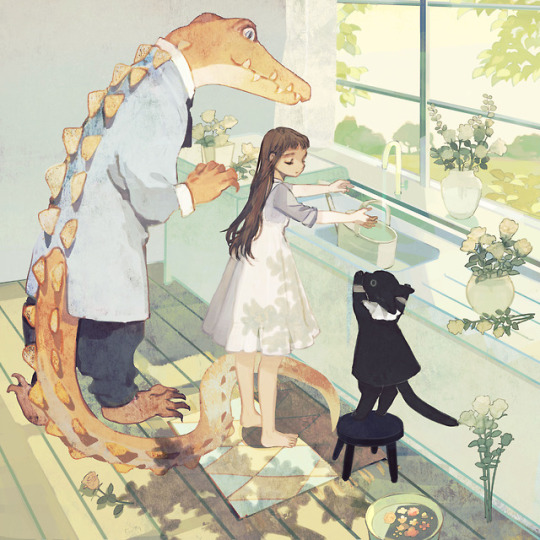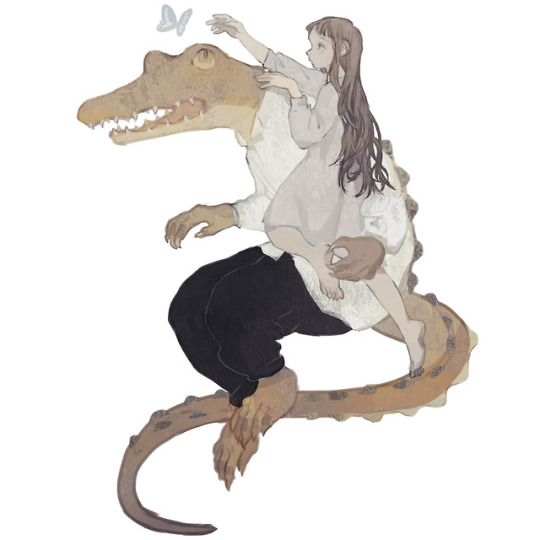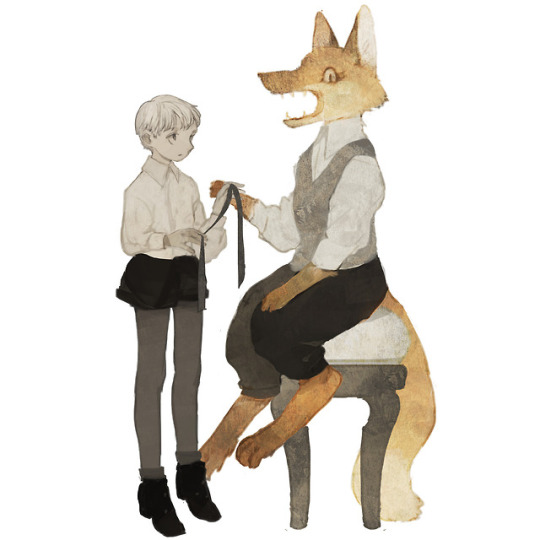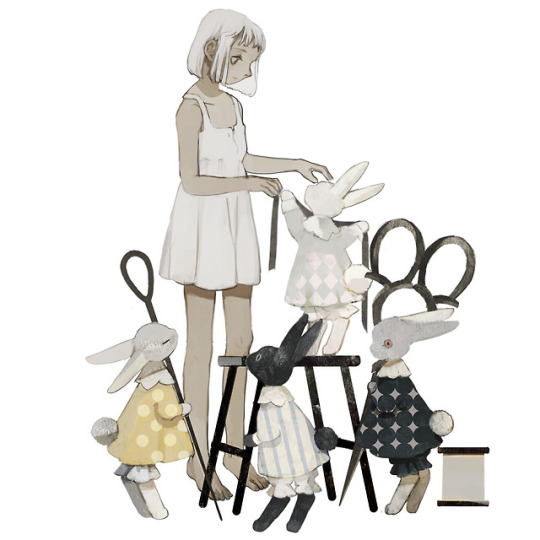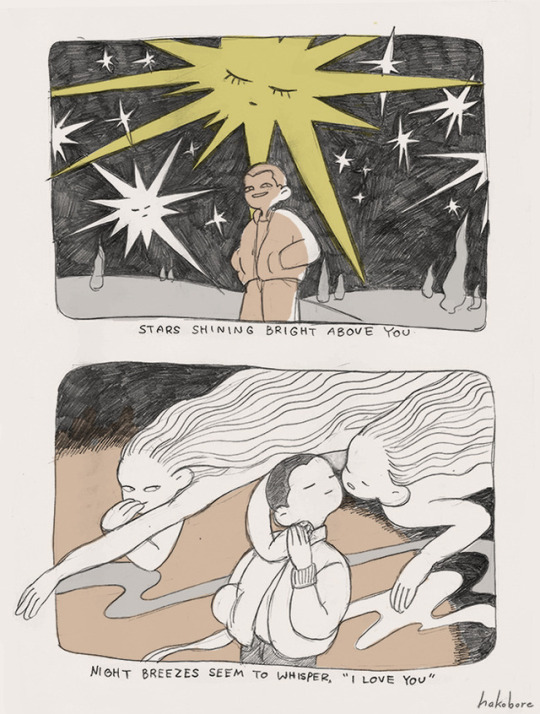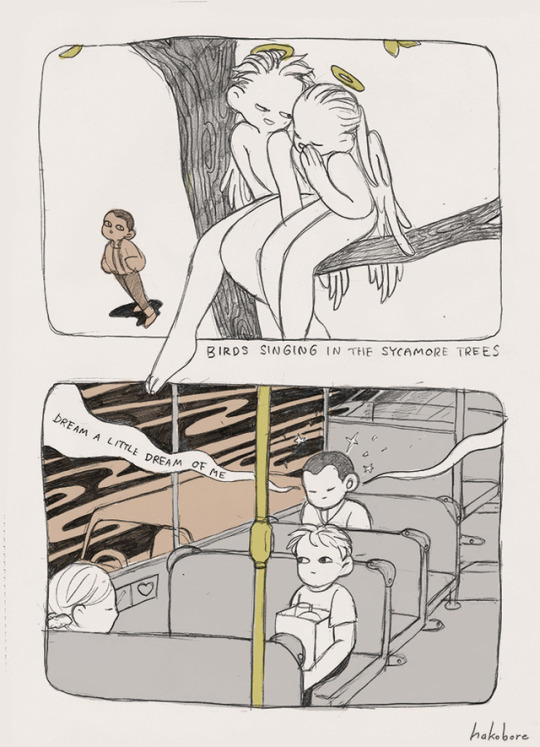Photo

The first of 15 illustrations I’ll be making for #drawtober2018 !
11K notes
·
View notes
Text
Let’s Talk About Crabs and Buckets.
If you put a single crab into a bucket, it will climb out and escape from becoming someone’s dinner. If you put a whole bunch of crabs in a bucket, however, the crabs in the bottom of the bucket will pull the crabs at the top of the bucket back down if they try to escape. Instead of allowing some or all of the crabs to survive, the group of crabs will ensure that every single one of them ends up on a plate.
This same phenomenon is seen in human communities, where it has become known - appropriately - as crab bucket mentality. From the outside, these crab bucket communities might look like support groups, or places to get feedback and advice. But in reality, they are black holes - these are communities where people go to tear each other down, and to actively be torn down in return. Instead of lifting each other up, these communities burrow further and further into their buckets, until everyone is too bitter and broken to ever climb out. And you might be part of a crab bucket community without even knowing it. Some online communities are obvious crab-buckets. The so-called “incel” community might be the most obvious example; these are angry young men who tell each other over and over again that they are worthless, unattractive, and that they will never be loved. Lonely teenagers enter the incel community to talk about how frustrated and insecure they are after dealing with romantic rejection, and they quickly find themselves pushed toward hopelessness, violent misogyny and suicidal fantasies. Likewise, the “pro-anorexia” and “thinspo” communities are crab buckets, where members encourage each other to adapt more and more extreme disordered eating, and often invite other members to make cruel comments about their bodies and food journals. Insecure young women (and some men) go to these communities because they want to like their bodies more, and end up weighed down with self-hatred.
But not every crab bucket is obvious.
Although there are lots of wonderful and supportive spaces online for LGBTQ+ people, the internet is also littered with LGBTQ+ crab buckets - especially for trans people. Some trans communities are almost entirely dedicated to discouraging and criticizing other trans people for not “passing”; these communities will pore over each others’ pictures, pointing out lingering masculine or feminine features, comparing each other to “a man in a dress”, or outright convincing each other that there is no point in transitioning, as they have no hope of ever “passing”. Anxious trans or questioning people join these groups to navigate a very difficult time in their lives, only to have their own insecurities magnified and distorted. Communities and feedback circles for writers and artists can also be crab buckets. Again, while there are wonderful and supportive spaces available, there are also toxic black holes out there, masquerading as genuine communities. I’ve belonged to writers’ groups where every single piece of writing was viciously torn to shreds, no matter how promising it might have seemed, and there were constant discussions about how ‘pointless’ it was to try to get published. Members were so insecure about not “making it” that they frantically tried to crush the hopes and dreams of anyone who might be competition. Instead of producing better writing, these kinds of groups eventually produce no writing at all.
Activist communities are often crab buckets. On the surface, people join activism communities to lift each other up and feel less alone in their cause; in reality, however, many activist communities have underlying cultures of suspicion, gossip, and hostility. Members gleefully comb through each other’s posts and content carefully, constantly looking for any small mistake or out-of-context comment that will allow them to declare that someone is “trash” or “cancelled”. People join these causes to fight back against their own feelings of powerlessness, and often report developing anxiety, depression and panic attacks as a result.
The list of crab bucket communities goes on. Any kind of group can become a crab bucket group under the right conditions; just because a community is created by and for a marginalized identity, it doesn’t mean that that community is actually safe for that identity. As humans, we like to band together in groups to accomplish large goals and feel less alone… but sometimes, we turn those groups into echo chambers for our own toxic ideas, and try to drag as many people as we can down into our buckets of despair with us.
If you’re in a group that you suspect might be getting a little crabby, it’s probably time to leave. Turning a whole group around by yourself is an enormous and thankless task, and it’s not one that I’d wish on anybody. Once a group of people have formed a collective identity around proving why they’re all worthless or fat or problematic, it’s hard to turn that ship around, and any attempts to do it might be met with hostility. It’s okay to give up on toxic communities, and look for healthy ones that build you up instead of tearing you down.
It’s okay to climb out of the bucket.
30K notes
·
View notes
Photo

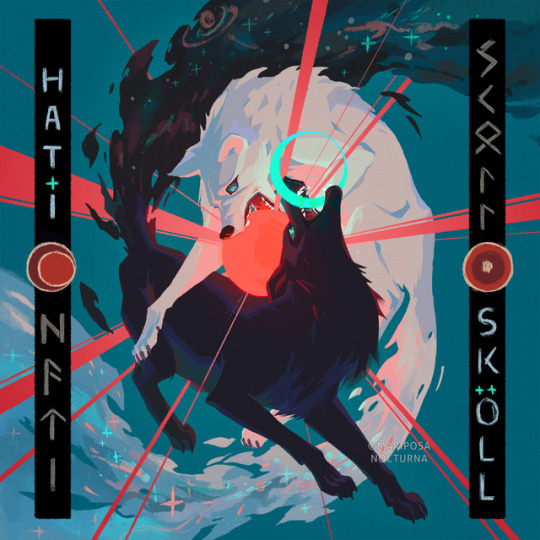
Here is the final illustration of the Managarm wolves for those of you who have been following me on instagram/ Facebook (I tend to ask many questions to my followers there) 🤗🤩 Thank you again for helping me with this. It will be available on my shop soon. (sorry for the double post, i kinda messed up the other one XD )
17K notes
·
View notes
Photo

And, around we go. Today’s smile goal: hold someone real tight. 🦊🦊🦊 this comic was inspired by two Patreon patrons!
If you 😀 from this comic, consider helping me make more by pledging at my Patreon (even $1 helps!) : Patreon.com/4amShower. I’m selling prints and open for commissions! Email me at [email protected] for more info! If you have a favorite animal and topic such as love or depression, comment and I might be able create a comic from it :) https://www.instagram.com/p/BoQehdBgtpb/?utm_source=ig_tumblr_share&igshid=39kfozb42edf
57 notes
·
View notes
Text
“It is a lonely feeling when someone you care about becomes a stranger.”
— Lemony Snicket
1K notes
·
View notes
Text
youtube
#abc15arizona#breaking news#maricopa county animal care and control#adoption#animal shelter#puppies#help animals#maricopa county#pet adoption#volunteer#foster home#saveanimals#compassion#buddha#animal rights#love#healing#nurture#doge#hecc#shibe#help#cuddle#borf#doggo#doglover#dogblr#dog#cute dogs#hug
1 note
·
View note
Photo










Some new character designs I’ve done! (part 1)
1K notes
·
View notes
Photo










Some new character designs I’ve done! (part 1)
1K notes
·
View notes
Photo









Some new character designs I’ve done! (part 2)
524 notes
·
View notes
Text
“Being brave doesn’t mean you aren’t scared. Being brave means you are scared, really scared, badly scared, and you do the right thing anyway.”
— Neil Gaiman
1K notes
·
View notes
Text
ON EARWIGS
There is a commonly circulated urban legend concerning earwigs that their name is a reference to a particularly horrifying type of parasitism: that they burrow into the human cranium through the ear canal, then tunnel their way into the brain’s gray matter where they lay their eggs.
In modernity, most discover this myth by way of encountering its refutation. Nearly every text concerning earwigs includes, somewhere in the first few sentences, language similar to this: “Despite their nomenclature, earwigs do not actually burrow into the human cranium through the ear canal to lay their eggs, though this is a commonly circulated urban legend.”
This commonly circulated statement of negation propagates by either burrowing into the human cranium through the ear canal as sound, or through the pupils as written word, before becoming memory in the brain. From there, it multiplies through repetition by the tongue or fingertips.
As a result, the original legend occupies the body of any statement denying its truth, a parasite embedded within its own extermination, quietly spreading from one mind to another.
In this respect, antlions are a close cousin to earwigs.
Bloody Mary also propagates via negation.
57 notes
·
View notes
Photo

It spoke your name on the stairs that night.
74K notes
·
View notes

